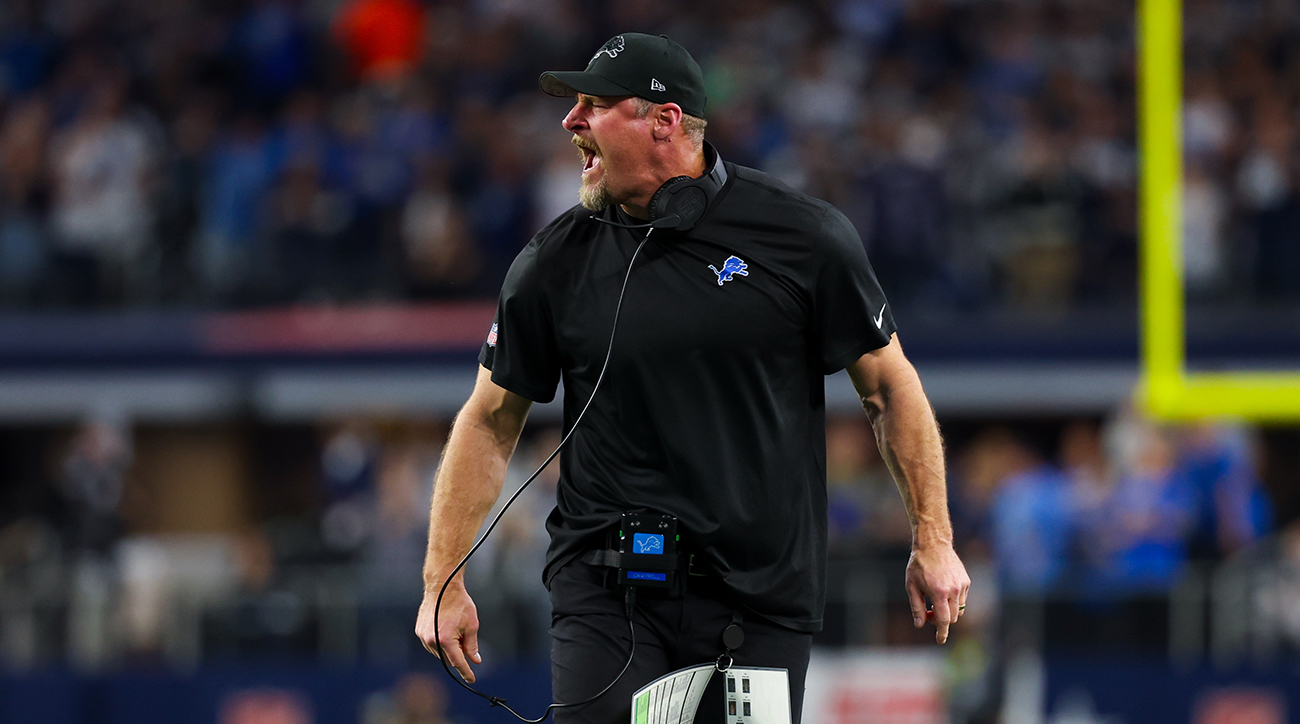Dean Blandino Explains Fundamental Problem With Lions’ Attempt to Confuse Cowboys
The controversial penalty called on the Detroit Lions that cost them a potential win over the Dallas Cowboys is still a hot topic of conversation as Week 18 approaches.
At issue is whether or not officials were correct in wiping out the two-point conversion that would’ve given Detroit a 21–20 lead and a likely victory. Offensive tackle Taylor Decker caught a pass in the end zone, but was ruled an ineligible receiver, which took the two points off the board and moved the Lions five yards back.
Coach Dan Campbell insisted that the penalty never should have been called because he informed the officiating crew before the game that the Lions would send three linemen to the referee, with one of them checking in as an eligible receiver. Campbell later admitted that the tactic was intended to deceive the Cowboys’ defense.
However, the officials never should have allowed the Lions to employ such a ruse. That’s according to former NFL vice president of officiating Dean Blandino, now a rules analyst for Fox.

Blandino was asked by Pro Football Talk’s Mike Florio if officials would accommodate a team’s admitted attempt to confuse a defense as to which lineman could be an eligible receiver on a play.
“If a coach told officials that, the officials would tell them they couldn’t do it,” Blandino told Florio. “The referee would never go along with that and would make sure the defense knew exactly who was reporting.”
As it turned out, the Lions ended up confusing referee Brad Allen, who mistakenly identified reserve lineman Dan Skipper as an eligible receiver in Detroit’s offensive formation. The attempt to deceive the Cowboys was clever, but shouldn’t have been allowed had the Lions been more forthright about their intentions.
